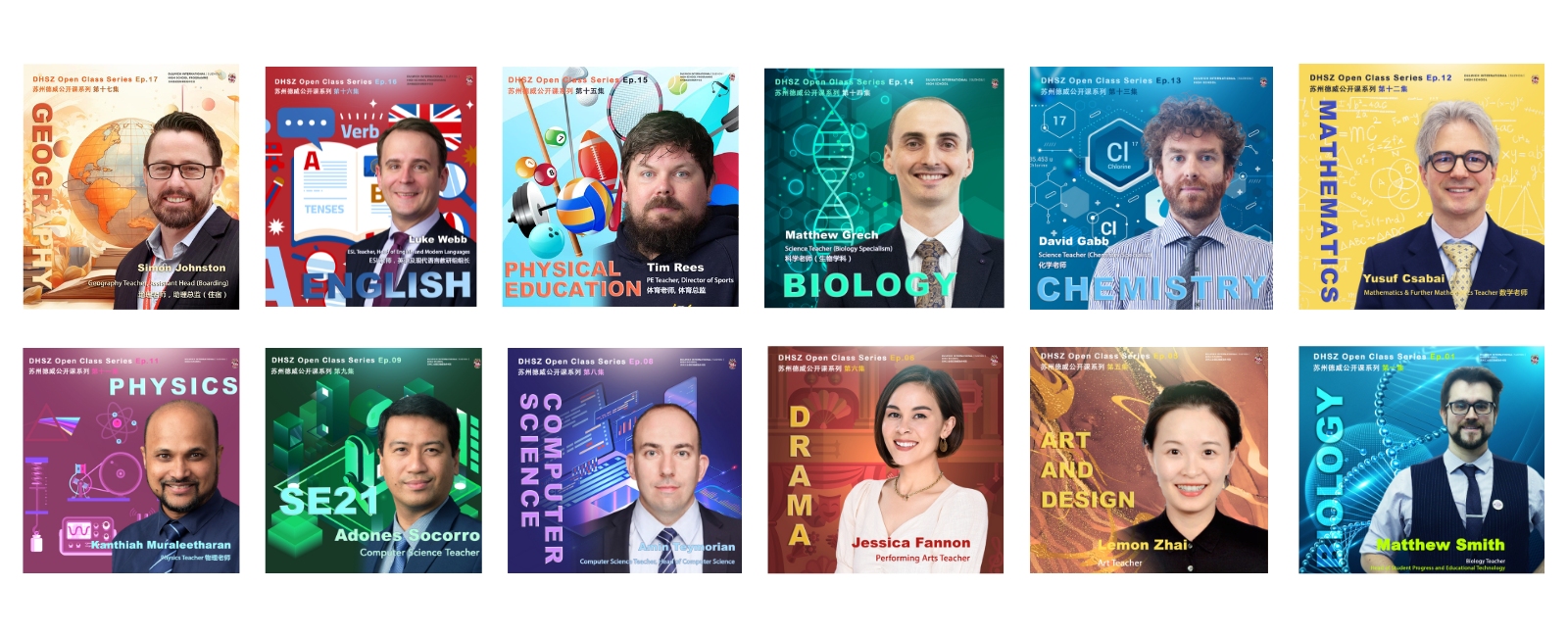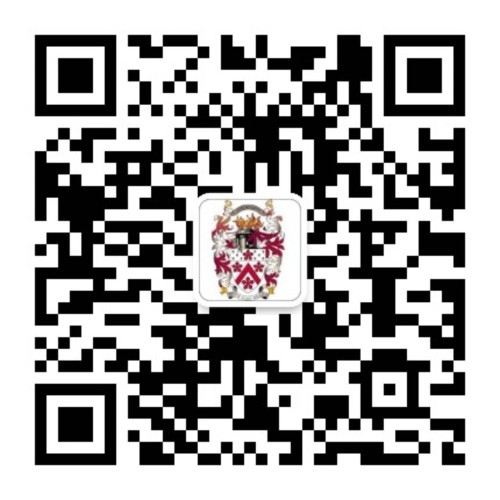Academic Departments
We appreciate that for many of our students, they are about to experience a big transition from their current school, as they move to ours. At this point, I would like to reassure new students and parents, that year after year, students have joined our school and successfully made this transition. Yes, there may be some challenges and it does take time to adjust, but this is part of gaining confidence in a new system and your teachers will support you along the way.
In our school, we expect students to enter school prepared for lessons and other scheduled activities. Students must engage with the full academic curriculum, Co- curricular activities, House activities, PE, Drama, Lifeskills and Week Without Walls. When entering school they should be in proper uniform, arrive on time, carry the required materials and be punctual for lessons.
Your teachers will introduce routines for their classrooms, and it is important that you follow these. This will help support your learning and the learning of others. Your teacher will set expectations and you must try your best to meet these. These expectations may include, speaking in English as much as possible, participating and engaging in group activities, developing confidence to raise questions and share opinions, supporting others in their learning and being respectful to everyone in the classroom.
We want our students to challenge themselves and not to be afraid to make mistakes as these are also valuable learning opportunities. The classroom is a safe space and students should be comfortable asking questions and reaching out to their teacher for support.

English and Modern Languages
In the English and Modern Languages classroom we always begin with an activity to introduce the learning objective and language groups, as well as connect what we are going to do to prior learning. Lessons develop in an active way, utilising a range of skills so that students develop their speaking, reading, writing, and listening skills in each lesson. We focus not only on lesson content but also on why we are doing what we are, and where it fits into the development of DHSZ Values, Global Citizenship, and skills that will enable students to flourish at university and beyond.
Maths
In the Maths classroom we usually have a warm-up activity linking prior learning to the concept being introduced during the class. The activities vary from topic to topic, in terms of developing the concept. Sometimes the topic is introduced, reinforced and consolidated, or students are encouraged to develop the concept through a series of carefully guided and differentiated tasks. As well as deepening knowledge, students are always challenged to also develop their problem solving and critical thinking through the activities set both in class and for independent work out of the classroom.
Economics
In the Economics classroom we start a topic with a variety of hooks: it could be a picture, a quick quiz, a story, a chart, or even a game. From there the lesson usually has an input, commonly from a Power Point Presentation, where the teacher begins to explore the lesson topic. Lessons will include activities such as pair or group work, mini-whiteboard activities, worksheets, discussions, writing exercises, and skills tests. Our teachers make significant use of questioning to draw out ideas and facilitate discussions. Students are encouraged to take agency for and ownership of their learning in many ways. Homework supplements learning that takes place in the classroom.
Geography or Liberal Arts
In the Geography or Liberal Arts classroom, we introduce the topic of the lesson in a variety of ways. This could be studying a source such as a photograph, watching a short video clip or sharing an opinion. The discussion in the classroom enables the teacher to gauge any prior knowledge that students have.
The teacher encourages students to develop their speaking, writing, reading, and critical thinking skills in a variety of ways throughout the lesson, whilst at the same time ensuring that the syllabus content is delivered. Homework is set on a regular basis to check student understanding and to support students in deepening their knowledge of the content that is delivered during the lesson.
Art
In the Art classroom students explore different artists’ work, use a variety of materials, develop creative ideas and produce a related outcome. Lessons are engaging and students drive the direction of their project with support and feedback from their teacher.
Students are encouraged to make decisions, actively participate in the lesson and develop their drawing and use of material skills. Our teachers aim to foster a love of learning in art and enable students to take ownership of their project. Homework is regularly set to support class learning and refine skills.
Science
In the science classroom students explore the develop their knowledge and understanding of the subject and, develop the practical skills and analytical skills that they need to apply the scientific method to problems. The teacher will bring science to life with practical demonstrations or by guiding the students through practical investigations of their own. The students are encouraged to think like and cultivate the attributes of an effective scientist such as objectivity, integrity, enquiry and creativity.
We focus on developing the language and literacy of our students by encouraging them to speak out and participate in lessons, provide them with well-scaffolded and structured tasks and providing them with regular and high-quality feedback. Our teachers use a variety of instructional techniques to bring science to life in the classroom, ensuring that our students enjoy science and allowing them to develop an informed interest in the subject.
Physical Education
In Physical Education class at DHSZ, we focus greatly on team sports and the development of personal and interpersonal skills, such as leadership, respect, working as a team, winning, and losing, and participating in a wide range of new and unfamiliar sports. We encourage our students to be actively involved in the lessons and the style is to allow for an active and engaging lesson where students work together in teams while also learning new skills.
Our aim is to ensure that students have an active and healthy learning experience through PE class and promote our students to be lifelong active members once they leave school. We explore a range of different sports including, hockey, ultimate frisbee, dodgeball, badminton, volleyball, football, and basketball to name a few. Year 10 students will be encouraged to improve their social English skills within the lessons and learn keywords associated with sport, and exercise. Outside of the PE lesson students have several opportunities to be involved in sports, such as our team sports and Inter-House Competitions.
Drama
In the Drama classroom students practice 21st century skills such as creativity, communication, collaboration and critical thinking. Emphasis is on developing vocal and physical abilities through performance, imagination through inventing and interpreting drama, and expanding English literacy through speaking, reading and writing.
Lifeskills
Lifeskills is a school curriculum subject at DHSZ that focuses on helping students stay healthy, safe, and prepared for their future endeavours and life abroad.
Lifeskill classes offer a variety of courses and events ranging from cooking classes; Enterprise fairs, to simple first aid and Anti-bullying courses. The program allows Dulwich students to achieve their academic potential, by having lessons focused on setting goals and creating routines in their school life.
In Lifeskills our key goal is to create a well-rounded individual who is well prepared for life beyond Dulwich and to succeed at their chosen university. The class philosophy is every student’s voice is heard, and we do this by having multiple venues where students can voice concerns, ideas, and changes.
Chemistry
In the Chemistry classroom, quantitative and qualitative skills are combined to enhance inquiry-based methods of study. Teachers bring Chemistry to life through practical demonstrations or by guided experimentation. The emphasis for students is on experimental methods of learning. Theory, practice, and communication skills are combined to create a holistic chemistry learning experience.
We focus on developing the language and literacy of our students by encouraging them to speak out and participate in lessons, provide them with well-scaffolded and structured tasks and providing them with regular and high- quality feedback to ensure they know where they are and they are going on their Chemistry journey.
Computer Science and SE21
In computer science, students develop the skills necessary to solve computer-based problems using a high-level programming language (e.g., Python), and investigate the internet as a means of communication and its associated risks (e.g., networks and security), the development and use of automated and emerging technologies (e.g., digital money and automated systems), and methods of storing and retrieving data quickly, including representing logic in hardware. Students explore questions like: How does AI really work? How is every pic on a phone just a bunch of 0s and 1s? How can a message be kept so secret than even a supercomputer cannot crack it?
In SE21, students develop hands-on project-based STEAM and entrepreneurship skills as a pathway to AS and A level computer science study. Students engage in graphic design via t-shirt making, enterprise fair business practices, mixed-media design via ceramics, product development using papercraft, automation via smart home design, VEX robotics competition, portfolio creation via HTML and CSS web development, SDG understanding via mobile app development and game creation, 3D design and printing, augmented and virtual reality, physical computing via Raspberry Pi, and high-level programming skills using Python.
Both CS and SE21 students are encouraged to join super-curricular activities such as Climathon 2025, EiM PlanetHack 2025, GameJam 2026, and HakD 2026 hackathons, UW CCC 2026 programming contest, and AMT CAT 2026 computational thinking contest.






